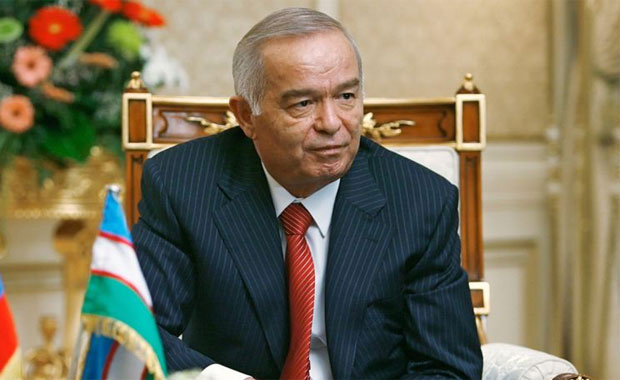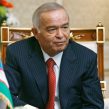
With Upcoming Presidential Election, Status Quo Looks Likely to Remain Unchanged
Publication: Eurasia Daily Monitor Volume: 12 Issue: 16
By:

Nearly two more months remain before the presidential elections in Uzbekistan, to be held on March 29, and candidates from all four political parties have been identified (Uzbekistan.org, January 26). However, any change to the status quo in the country’s political climate appears unlikely for the time being. The 2015 elections, and their outcome, are poised to differ little from the last elections in 2007. Furthermore, Shavkat Mirziyaev, who has served as Uzbekistan’s prime minister since 2003, has already been named to continue in this position, thus signifying an overwhelming likelihood that the present distribution of power in the country will endure.
The presidential nominees in the running can be divided into unknown, somewhat known and very well known on the international stage. Narimon Umarov, from the Social-Democratic Party “Adolat,” and Hatamjon Ketmonov, from the National Democratic Party, fall into the first category, with basically no name recognition abroad. Akmal Saidov, nominated from the Democratic Party “Milliy Tiklanish,” falls into the second category, while incumbent President Islam Karimov, the candidate of the Liberal-Democratic Party, clearly falls into the third.
Saidov, the director of the state-run National Human Rights Center, will test his electoral luck for the second time during the March 2015 campaign. In 2007, he lost (2.85 percent of votes) to Karimov (88.1 percent of votes). The “Milliy Tiklanish” candidate represents Uzbekistan in various human rights and democracy related international meetings. In 2013, he received a great deal of media coverage during Uzbekistan’s review meeting at the United Nations Committee Against Torture, where he angrily and emotionally answered the questions posed to him (UN Treaty Body, October 31, 2013).
The Liberal Democratic Party is nominating Islam Karimov for the second time. As the majority party in the parliament—it won 52 seats out of 135 in the December 2014 parliamentary elections—the Liberal Democratic Party also has the right to nominate a prime minister. And the party chose to re-nominate sitting Prime Minister Mirziyaev (Noviy Vek, January 15).
The constitutional amendments passed in the past three years introduced some changes under which the new parliament, its 150 representatives, prime minister, and the head of state will work. The prime minister is supposed to lead and control economic and social issues in the country, while the president serves as a head of state for five, not seven years. It will be interesting to watch whether President Karimov will “train and mentor” Prime Minister Mirziyaev to fully handle the country’s economic and social matters and increase his prominence, or whether Karimov will remain the sole prominent face and decision-maker in Uzbekistan. In addition, the role of the parliament is supposed to strengthen under the new amendments, with increased debates occurring among the parties—supposedly this will keep the prime minister and his or her cabinet accountable (12uz.com, March 14, 2014).
In Uzbekistan, a country where everyone is careful about anything political they say, an increase in political debates would certainly be surprising to see. In this vein Uzmetronom, an independent online news outlet banned in Uzbekistan, conducted its own poll in the streets of Tashkent ahead of the December 2014 parliamentary elections. Out of 120 respondents polled, only 6 could name all four competing political parties correctly, 14 could name two parties, 87 answered that they were not interested in the issue, and 13 did not answer at all. To the question whether the parliamentary election would be truly competitive, all respondents answered negatively, and 47 people added that they did not expect their voice to change anything domestically (Uzmetronom, September 26, 2014).
If the incoming Uzbekistani parliament is, indeed, set to take on a larger role in the country’s political life, the legislative body’s make-up following the 2014 elections may end up being relatively significant. Notably, the newly elected members of parliament are composed of a mixture of a sizeable number of young representatives, balanced with the so-called Soviet generation. Out of the one hundred twenty-eight parliamentarians elected in the first round, six people are 29 years of age or younger, thirty-nine are between 30 to 39 years old, forty-four are 40–49, and thirty-nine are 50 or older (Gazeta.uz, December 25, 2014). This could be representative of the step-by-step transition of power in Uzbekistan from the older to the younger generation.
Still, the Organization for Security and Co-operation in Europe (OSCE) qualified the parliamentary elections as lacking genuine electoral competition and debate among the candidates. Although, the OSCE did report that the Uzbekistani authorities had competently administered the vote (Osce.org, December 22, 2014).
Regarding the executive branch, in his end-of-year speech on the outcomes of 2014 and the government’s future priorities, President Karimov has already outlined six areas for the Cabinet of Ministers to focus on. All six of these points, however, are related to economic development. Karimov did not touch upon the new diverging the roles of the president and prime minister, or the increased role of parliament under the newly amended constitution. One area somewhat related to the governance issue, which President Karimov outlined, was the maximum possible reduction of the role of government in the economy, with only strategic economic sectors remaining within the purview of the government (Press-service.uz, January 17). These changes will most likely be clarified by a presidential decree or a privatization program in 2015.
The recent parliamentary elections and the upcoming presidential elections are a part of the incremental democratization process envisioned by Uzbekistan’s President Karimov. At least for this coming year, however, Karimov will most likely retain the majority of his control over the country.




